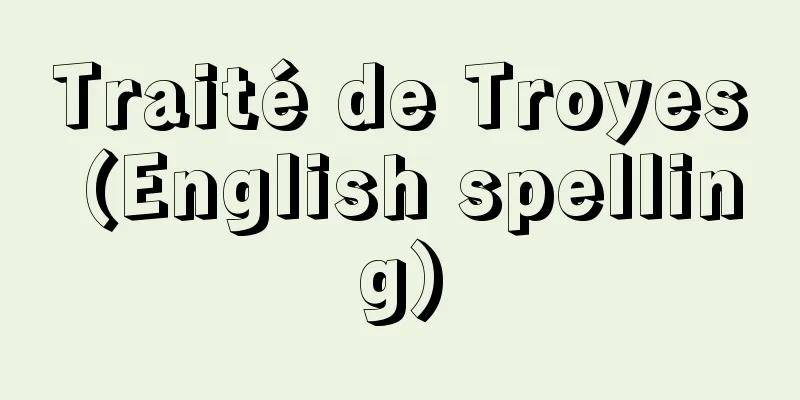Shinobu Orikuchi

|
A scholar of Japanese literature, folklorist and poet. His pen name was Shakucho-ku. He was born on February 11, 1887 in Kizumura, Nishinari County, Osaka Prefecture (now Naniwa Ward, Osaka City). His family was a doctor and a merchant selling herbal medicines and miscellaneous goods. He graduated from Tennoji Junior High School in 1905 (Meiji 38) and went on to Kokugakuin University. He read the classics closely from his junior high school days and worked hard to write tanka poetry together with his friend Takeda Yukichi and others. At Kokugakuin, he was deeply under the patronage of Japanese scholar Mitsuya Shigematsu. After graduating, he became a teacher at Imamiya Junior High School in Osaka, but left after just over two years and moved to Tokyo, where he devoted himself to studying Japanese literature and writing tanka poetry. He met the poet Shimaki Akahiko and joined the Araragi magazine. He also came to know the folklorist Yanagita Kunio, was deeply influenced by him, and discovered the path he should take in his studies. In 1919 (Taisho 8), he became a lecturer at Kokugakuin University, and later served as a professor at the institution for the rest of his life. In 1920, he travelled to the mountainous areas of the Chubu and Tokai regions to collect folklore, and in 1921 he left Araragi and travelled to Okinawa twice, in the same year and in 1923, to collect folklore. Orikuchi's academic pursuits in ancient studies were opened by the travels he undertook during this period. In 1923, he became a lecturer at Keio University, where he continued to work as a professor until his death. In 1924, he took over the "Complete Genji Monogatari Lecture Series" held by Miya Shigematsu, who had died the previous year, and in the same year, he joined the tanka magazine Nikko, which included Koizumi Chikashi and Kitahara Hakushu. In 1926, he visited and investigated flower and snow festivals in the mountainous areas of Nagano and Aichi prefectures. In 1930 (Showa 5) and the following year, he traveled throughout the Tohoku region. In 1932, he obtained a doctorate in literature. In 1944, he adopted his disciple Fujii Harumi (1907-1945), but Harumi was killed in battle on Iwo Jima the following year. In 1948 (Showa 23), he was elected as a member of the first Science Council of Japan, and the following year, in 1949, he became the inaugural contestant for the poetry gathering. He died of stomach cancer on September 3, 1953, at the age of 66. His academic style combined the research methods of Japanese classics with the new research methods of folklore, and added elements of the study of real experiences based on his own individuality, in an attempt to grasp the traditions of the Japanese heart from ancient times to the present, and his research fields ranged from Japanese literature and folklore to Shinto studies, Japanese linguistics, and the history of performing arts. He found elements of foreign gods in the Japanese concept of gods, positioned them as "marōdo" (rare people), and presented a theory of the origins of Japanese literature based on "marōdo faith." His main works include "Ancient Studies" (3 volumes, 1929-1930), "An Introduction to the Origin of Japanese Literature" (1951), "Modern Tanka" (1940), "Six Lectures on the History of Japanese Performing Arts" (1944), and "A Colloquial Translation of Manyoshu" (1916, 1917). Although he was a man of many creative endeavors, his lifelong passion was tanka poetry, where he would sing tanka poems in a serene tune, expressing the emotions he felt during his travels as a folklorist. "The faintness of the ancient mountains. I can hear the voices of those who call out to others." He added punctuation to his poems, and wrote the critique "When Poetry Falls into Tranquility," in which he foresaw the fall of poetry and the next poetic form, bringing a breath of fresh air to the world of tanka poetry. His tanka collections include "Between the Sea and the Mountains" (1925), "Spring Bullets" (1930), "On the Water" (1948), "Distant Mountains" (1948), and "Guna Yamato" (1955). His poetry collections include "Collection of Ancient Feelings of Love" (1952, winner of the Japan Art Academy Prize), "Collection of Modern Sorrows" (1952), and "Collection of Contemporary Rags" (1956). His novel is "Book of the Dead" (1939). [Hirohiko Okano February 18, 2019] "The Complete Works of Orikuchi Shinobu" 37 volumes and 3 supplementary volumes (1965-2002, Chuokoron-Shinsha, Chuokoron-Shinsha)" ▽ "The Complete Works of Orikuchi Shinobu: Notes Edition" 18 volumes, 1 supplementary volume, and 5 supplementary volumes (1970-1988, Chuokoron-Shinsha)" ▽ "Japanese Folk Culture Series 2: Orikuchi Shinobu" by Ikeda Yasaburo (1978, Kodansha)" ▽ "The Life of Orikuchi Shinobu - The Formation of Shakateiku" by Kato Morio (1979, Kadokawa Shoten)" ▽ "Shakateiku" by Fujii Sadakazu (1974, Kokubunsha/Kodansha Academic Library)" ▽ "The World of Orikuchi Shinobu" by Kajiki Tsuyoshi (1982, Sunakoya Shobo)" ▽ "The Late Years of Orikuchi Shinobu" by Hirohiko Okano (1969, Chuokoron-Shinsha/Chuko Bunko/Revised Edition, 2017, Keio University Press) [References] | | | | | | | | |Source: Shogakukan Encyclopedia Nipponica About Encyclopedia Nipponica Information | Legend |
|
国文学者、民俗学者、歌人。筆名釈迢空(しゃくちょうくう)。明治20年2月11日大阪府西成(にしなり)郡木津村(現、大阪市浪速(なにわ)区)に生まれる。生家は医者と生薬(きぐすり)・雑貨を売る商家を兼ねていた。1905年(明治38)天王寺中学を卒業し、国学院大学に進んだ。中学生のころから古典を精読し、友人の武田祐吉(たけだゆうきち)らとともに短歌創作に励む。国学院では国学者三矢重松(みつやしげまつ)から深い恩顧を受けた。卒業して大阪の今宮中学の教員となったが、2年余で辞して上京、国文学の研究と短歌の創作に情熱を注ぐ。歌人島木赤彦(しまきあかひこ)を知って『アララギ』に入会。また民俗学者柳田国男(やなぎたくにお)を知って、深い影響を受け、進むべき学の方途をみいだした。1919年(大正8)国学院大学講師となり、のち教授として終生国学院の教職にあった。1920年中部・東海地方の山間部を民俗採訪のため旅行、1921年『アララギ』を退会、この年と1923年の二度にわたって沖縄に民俗採訪旅行。折口の古代研究の学は、この時期の採訪旅行によって開眼した。 1923年慶応義塾大学講師となり、のち教授として没年まで勤続する。1924年、前年に没した三矢重松の「源氏物語全講会」を継承して開講、またこの年、古泉千樫(こいずみちかし)、北原白秋(きたはらはくしゅう)らの短歌雑誌『日光』に同人として参加。1926年長野県・愛知県山間部に花祭、雪祭を採訪調査。1930年(昭和5)とその翌年、東北地方各地を旅する。1932年文学博士となる。1944年門弟藤井春洋(ふじいはるみ)(1907―1945)を養嗣子(ようしし)としたが、春洋は翌年硫黄(いおう)島で戦死。1948年(昭和23)第1回日本学術会議会員に選ばれ、翌1949年歌会始選者となる。昭和28年9月3日、胃がんによって死去。66歳。 その学風は、国学の研究法に新しく民俗学の研究法をあわせ、さらに独自の個性による実感の学としての要素を加えて、古代から現代に至る日本人の心の伝承をとらえようとしたもので、研究の領域は国文学、民俗学をはじめ、神道学、国語学、芸能史の面に及んでいる。日本人の神観念のうえに外来神の要素をみいだし、それを「まれびと(まろうど)」として位置づけ、さらに「まれびと信仰」に基づく日本文学の発生論を示した。おもな著書に『古代研究』3巻(1929~1930)、『日本文学の発生序説』(1951)、『近代短歌』(1940)、『日本芸能史六講』(1944)、『口訳万葉集』(1916、1917)がある。 創作の面も多岐にわたっているが、生涯の情熱を注いだのは短歌で、民俗学者として旅中に得た感動を、沈潜したしらべにのせて歌った。「歳(とし)深き山の かそけさ。人をりて、まれにもの言ふ 声きこえつゝ」。歌に句読点を打ったり、歌のほろびと次の詩型を予感した評論『歌の円寂(えんじゃく)する時』を書いて、歌壇に清新の気を与えた。歌集に『海やまのあひだ』(1925)、『春のことぶれ』(1930)、『水の上』(1948)、『遠やまひこ』(1948)、『倭(やまと)をぐな』(1955)、詩集に『古代感愛集』(1952。芸術院賞受賞)、『近代悲傷集』(1952)、『現代襤褸(らんる)集』(1956)、小説に『死者の書』(1939)がある。 [岡野弘彦 2019年2月18日] 『『折口信夫全集』37巻・別巻3(1965~2002・中央公論社、中央公論新社)』▽『『折口信夫全集 ノート編』18巻・別巻1・追補5巻(1970~1988・中央公論社)』▽『池田弥三郎著『日本民俗文化大系2 折口信夫』(1978・講談社)』▽『加藤守雄著『折口信夫伝――釈迢空の形成』(1979・角川書店)』▽『藤井貞和著『釈迢空』(1974・国文社/講談社学術文庫)』▽『梶木剛著『折口信夫の世界』(1982・砂子屋書房)』▽『岡野弘彦著『折口信夫の晩年』(1969・中央公論社/中公文庫/修正版・2017・慶応義塾大学出版会)』 [参照項目] | | | | | | | | |出典 小学館 日本大百科全書(ニッポニカ)日本大百科全書(ニッポニカ)について 情報 | 凡例 |
<<: Origen - Origenēs (English spelling)
Recommend
Otade - Otade
...A large annual plant of the Polygonaceae famil...
Yemen Mountains - Yemensanchi
… In addition to the tilt of the land mass, lava ...
Significance
…a term used as a translation of the English word...
Movable blade blower - movable blade blower
...Used for compressed gas, pneumatic transport, ...
Pleydenwurf, H. (English spelling) PleydenwurfH
...On the other hand, the South German artists Lu...
Forms of government
Generally, it refers to the political form and fo...
Setsuro Ebashi - Setsuro Ebashi
Born: August 31, 1922, Tokyo [Died] July 17, 2006....
Huang Dao-zhou; Huang Tao-chou
[Born] Wanli 13 (1585) [Died] 1646 A loyal subject...
Minimum taxable income
When a certain amount is set and tax is imposed w...
tympan
…also called tympanum (French) or tympanon (Greek...
Macrophyll - Taiyo (English)
In plant morphology, megaphyll generally refers t...
Main line section - Main line section
These are lines that JNR (now JR) believed could o...
Amohostos - Amohostos
Greek name for the town of Famagusta in northern C...
Chatellenie
...As a result, the classical manorial system col...
Overall Review - Souhyo
[Noun] (suru) To criticize something in its entire...









![Gokasho [town] - Gokasho](/upload/images/67cb8e66e964b.webp)